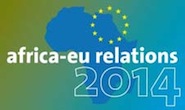The EU’s “comprehensive approach” in external action policy has provoked a range of responses - but the most widespread seems to be confusion. Ask 10 people from across the EU institutions to define the comprehensive approach and chances are you’ll get 10 different answers. While the basic premise is simple enough to grasp, it’s hard to find consensus, common language or any sense that the EU is actually acting comprehensively. Current developments in Mali have made the necessity for clarity even more pressing. This blog seeks to explore the key questions needed to frame the ...
When former South African President Thabo Mbeki brought back the notion of an African Renaissance to the African political circles in the late 1990s, the continent was at a different place than it is today. It was still suffering from decades of civil wars, dictatorships, bad governance, and socio-economic hardship. Africa was the ‘hopeless continent’. These were the issues the forefathers of the ‘African Renaissance’ sought to tackle when they set out to launch a plethora of new initiatives aimed at promoting popular participation and good governance, peace and security, ensuring the economic take off of ...
The OECD hosted the 2013 Policy Dialogue on Aid for Trade last week to discuss “how to continue delivering aid for trade results in a changing international environment for trade and development”. While this in part retread old ground, discussions nonetheless suggested that a change in thinking is taking place, particularly in terms of working with the private sector and helping developing country companies enter into global value chains. As my colleague Dan Lui discussed in a previous blog, the Aid for Trade agenda has faced a constant stream of questions, among others about definition ...
A whole new range of actors is placing private sector development centre of their attention and operations. While a wider set of players can provide significant strength and dynamic to any activity, it also brings confusion and incoherence. A useful first step would be to get a better common understanding of the actual impacts of private development activities, to define different measurement tools, and to reflect on their implications for policy. ECDPM with TraidCraft, DCED and BUSINESSEUROPE organised an informal multi-stakeholder meeting in Brussels in last December to highlight and share the different views of ...
Trade ministers and officials from South and North, academics, and donors will gather at the OECD in Paris next week for a policy dialogue to discuss the future of the Aid for Trade initiative. Conceived in 2005 in the context of the WTO Doha Round, Aid for Trade aims to improve the trading prospects of developing countries through targeting aid to this sector. In the seven years since its launch, there has already been a fair amount of navel-gazing amongst policymakers on questions of how to ‘operationalise’ such a broad and ambitious agenda. In the ...

















